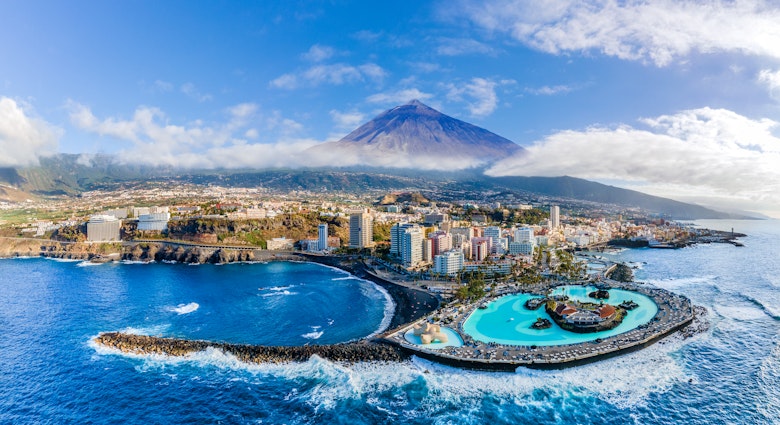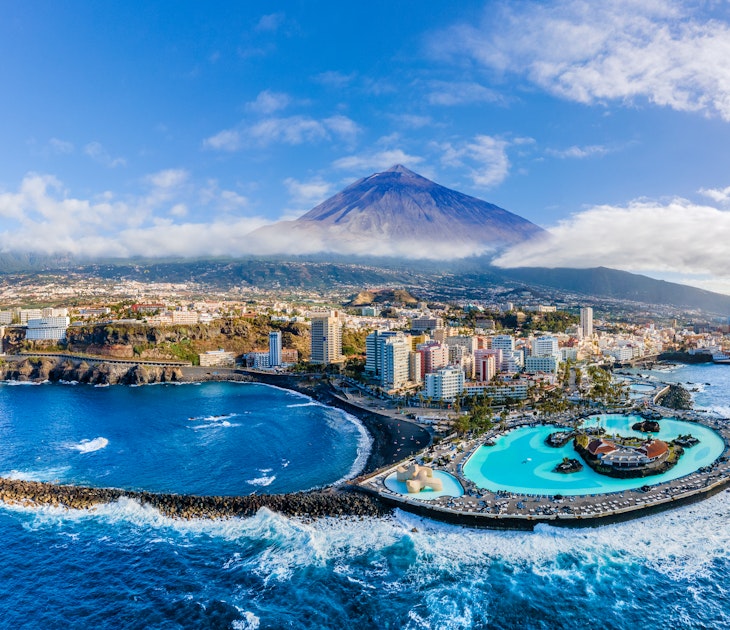
Parts of Spain now require a health pass from visitors to enter indoor spaces

Jul 27, 2021 • 3 min read

Parts of Spain, including Tenerife (pictured) now require proof of vaccination from individuals before allowing them to enter cafes, bars and restaurants © Shutterstock
In a similar move to France and Italy, some regions in Spain are now requiring individuals to show that they have been vaccinated or have tested negative for COVID-19 before entering cafes, bars and restaurants.
From July 31, Galicia will require proof of vaccination or testing status from people before they're allowed to dine or drink indoors at cafes, bars and restaurants, according to Spanish newspaper El País. That means people will need to prove they have been fully vaccinated or have tested negative for COVID-19 within the past 72 hours, or have recovered from the virus within the last six months.
Measures like this are increasingly required across Europe, with proof of vaccination now a condition of entry to many venues across Italy and France too.
Read more: France's new health pass is now required for your trip - here's how to get it

For citizens and travelers visiting Spain from an EU county, that proof can be the information that's stored on the EU digital COVID-19 certificate. For travelers who have arrived from the UK, the NHS certificate or app is accepted as proof of COVID-19 health status. Visitors from elsewhere should be able to show their official vaccination card as proof but the regional government has yet to set out clear guidelines.
On Monday, the Canary island of Tenerife joined Galicia in requiring similar proof from patrons who want to dine or drink indoors in cafes, bars and restaurants. The pass will also open doors to theaters, cultural centers, sports venues and indoor tourist attractions. It comes as the region raised its coronavirus alert to level four, the highest level. The popular tourist destination is the worst-hit of the Canary Islands, but the regional government warned the same requirement will apply across the archipelago if any other islands move up to level four.
Those who aren't vaccinated and need to show a negative COVID-19 test result can get a PCR test in many pharmacies and medical clinics across Spain. The Covid Testing Locations list will help you find your nearest testing site, as well as Google Maps. In Spain, the average cost of a PCR test is €120 and an antigen test is comparatively much cheaper at about €30.
Elsewhere, as the fifth wave of the pandemic takes hold, nighttime curfews are in place in the regions of Catalonia and Valencia and there are caps on social gatherings across much of the country. The fast spread of the Delta variant in Spain has also spurred the US to update its travel advisories. On Monday, the US Centers for Disease Control and Prevention (CDC) raised its travel advisory to "Level Four: Very High", telling Americans they should avoid travel to Spain, while the State Department issued a "Do Not Travel" advisory.
“The Centres for Disease Control and Prevention (CDC) has issued a Level 4 Travel Health Notice for Spain due to COVID-19, indicating a very high level of COVID-19 in the country,” the US Department of State said on Monday. Travel advisories were also increased for Portugal, Cyprus and Kyrgyzstan due to rising coronavirus case numbers.
You might also like:
The best time to go to Spain
Which of the Canary Islands is right for you?
This little-explored Canary Island is so much more than the stereotypes
Explore related stories


 National Parks8 things to do in Northwest Spain - beyond hiking the Camino de Santiago
National Parks8 things to do in Northwest Spain - beyond hiking the Camino de SantiagoNov 6, 2024 • 9 min read




 Budget TravelEverything you need to know about visiting Barcelona on a budget
Budget TravelEverything you need to know about visiting Barcelona on a budgetOct 23, 2024 • 6 min read
 Destination PracticalitiesHow to navigate Valencia by foot, bike, metro and more
Destination PracticalitiesHow to navigate Valencia by foot, bike, metro and moreOct 21, 2024 • 5 min read
 Destination Practicalities10 things you need to know before going to Barcelona
Destination Practicalities10 things you need to know before going to BarcelonaOct 18, 2024 • 6 min read
